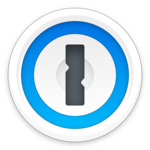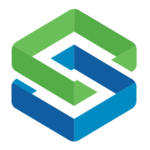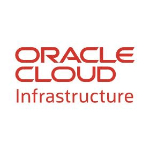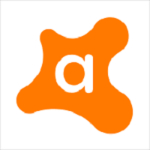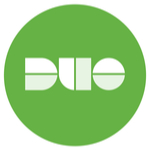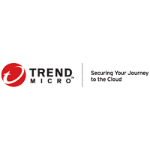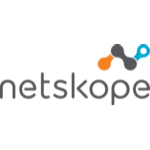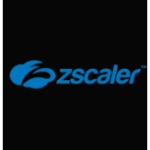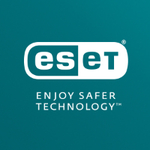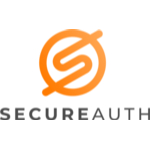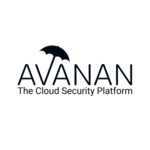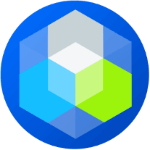TechnologyCounter provides genuine, unbiased real user reviews to help buyers make informed decisions. We may earn a referral fee when you purchase through our links, at no extra cost to you.
List of 15 Best Cloud Security Software
Showing 1 - 15 of 38 products1Password is more than just a password manager - its your personal digital vault for storing and managing all your sensitive information. With its robust security features and user-friendly interface, 1Password is a solution for keeping your online a...Read 1Password Reviews
Skybox Security Vulnerability is a crucial issue that has been causing concerns in the realm of cybersecurity. This vulnerability in the Skybox software has raised red flags among organizations worldwide. With the potential to be exploited by malicio...Read Skybox Security Vulnerability Reviews
Oracle Cloud Infrastructure is a and versatile platform designed to deliver high-performance cloud services for businesses of all sizes. From storage and networking to compute and security, Oracle Cloud Infrastructure offers a wide range of solutions...Read Oracle Cloud Infrastructure Reviews
Looking for reliable and effective protection against cyber threats? Look no further than Avast! With years of experience in the security industry, Avast offers top-notch solutions to keep your devices safe from malware, viruses, and other online thr...Read Avast Reviews
Duo Security is a trusted, innovative platform that leverages multi-factor authentication and access management solutions for top-level security. With its user-friendly interface features, Duo Security offers a reliable defense against cyber threats,...Read Duo Security Reviews
Trend Micro is a leading cybersecurity company trusted by millions of individuals and organizations worldwide. With its advanced technology and constant innovation, Trend Micro offers robust protection against online threats and supports secure digit...Read Trend Micro Reviews
Cloudflare is a leading web infrastructure and security company, revolutionizing how businesses of all sizes operate online. With its powerful suite of technologies, Cloudflare helps websites and applications run faster, smarter, and safer on the int...Read Cloudflare Reviews
McAfee, a leading name in cybersecurity, offers advanced protection against online threats for individuals and businesses alike. With its robust technology and constant innovation, McAfee provides peace of mind by safeguarding sensitive information a...Read McAfee Reviews
Netskope is a cloud security software designed to protect organizations from data loss, threats, and compliance risks in their cloud applications, websites, and web usage. With its advanced features interface, Netskope helps businesses maintain contr...Read Netskope Reviews
Zscaler is a software that has been transforming the way organizations approach cybersecurity. With its advanced cloud-based security solutions, Zscaler is eliminating the complexities and limitations of traditional security methods, providing a secu...Read Zscaler Reviews
ESET Endpoint Security is a software system designed to protect your companys devices and network from potential cyber threats. With its advanced features and customizable options, ESET ensures top-tier security for your business. Dont take any chanc...Read ESET Endpoint Security Reviews
Barracuda is a software that is revolutionizing the way businesses secure their data and networks. With its advanced technology and user-friendly interface, Barracuda is setting a new standard in the world of cybersecurity. This highly acclaimed soft...Read Barracuda Reviews
SecureAuth is a leading software company that specializes in providing innovative solutions for safeguarding identities and preventing cyber threats. With a strong focus on security, SecureAuth offers a wide range of products and services that ensure...Read SecureAuth Reviews
Avanan is a leading cloud security platform that helps businesses of all sizes secure their data and communications in todays ever-evolving cyber landscape. With industry-leading technology and a team of dedicated experts, Avanan provides innovative...Read Avanan Reviews
NetFoundry offers a game-changing platform for businesses to securely and seamlessly connect their applications and data without the limitations of traditional networks. With NetFoundry, organizations can achieve global connectivity with ease, enabli...Read NetFoundry Reviews
- What Is Cloud Security Software?
- Top Reasons Why Businesses Need Cloud Security Software?
- What Are the Top Key Features of Cloud Security Software?
- What Are the Top Benefits of Cloud Security Software?
- What Are the Steps to Choose the Right Cloud Security Software?
- What Are the Types of Cloud Security Software for Different Industries?
- What Are the Technology Trends for Best Cloud Security Software?
- What Are the Deployment Options for Cloud Security Software?
What Is Cloud Security Software?
Cloud security software refers to computer software specifically developed to safeguard data that is stored on a server hosted in a cloud computing environment.
The conventional approach involves the integration of automated monitoring and alerting mechanisms, alongside strategies such as encryption and user authentication, in order to mitigate the risk of unwanted system access and safeguard the stored data.
Cloud security system enables a consolidated perspective on security procedures that safeguard data kept in the cloud. It can be utilized to protect both cloud server-stored data and user authentication.
User authentication refers to the procedure of validating the identification of an individual user to grant authorization to access a certain system, dataset, or service. Cloud authentication methods often utilized in various systems encompass the utilization of user and password combinations, two-factor authentication techniques, and single-sign-on mechanisms.
The significance of cloud computing security software from the distinct security complexities that arise within the cloud environment. The dynamic nature of the environment renders it highly volatile and unpredictable, hence posing significant challenges in terms of effectively safeguarding against possible hazards.
Furthermore, cloud-based systems frequently encounter the need for authentication and authorization in diverse global locations, hence intensifying the associated challenges. The best cloud security software assists organizations in safeguarding their data, users, and devices through the provision of a centralized platform for managing and monitoring various security procedures.
Top Reasons Why Businesses Need Cloud Security Software?
1. To mitigate the risks associated with unauthorized access, malware, and malicious code, it is imperative to employ identity access management, firewalls, and other security measures.
2. To facilitate secure collaboration among geographically dispersed teams and clients, it is imperative to establish robust measures that guarantee the secure maintenance and sharing of all data.
3. To ensure uninterrupted data preservation and safeguard against potential loss, it is imperative to establish a system that consistently backs up critical data and facilitates prompt recovery in the case of a catastrophic incident.
4. The primary objective is to enhance transparency regarding operations within hosted systems to identify potential security risks.
5. To enhance the security of sensitive data, it is imperative to implement encryption techniques and other data protection technologies.
6. To mitigate the risks posed by distributed denial-of-service (DDoS) attacks, which have the potential to inundate a network with malicious traffic, protective measures must be implemented.
7. The primary objective is to offer antivirus and anti-malware safeguards to defend machines and networks against emerging threats.
8. To promptly identify and address internal security risks, such as unauthorized access to sensitive information and the presence of dangerous software.
9. To enhance the security of internet and web applications, it is important to use various measures such as content filtering, authentication systems, encryption, and safe coding practices.
10. To detect potential security compromises, it is necessary to monitor the access and usage of cloud-based services, applications, and systems.
11. To guarantee adherence to regulatory standards, such as those established by HIPAA, PCI DSS, and other regulatory bodies.
12. The objective is to establish secure and isolated networks inside shared cloud environments to safeguard the confidentiality of sensitive information.
13. To ensure the safeguarding of data kept in mobile devices, it is imperative to establish measures that enable their secure use for accessing cloud-based services.
14. To facilitate robust two-factor authentication across diverse cloud-based ecosystems.
15. To guarantee that cloud-based systems are exclusively accessible to reliable users and to prevent any potential exploitation of such access.
What Are the Top Key Features of Cloud Security Software?
1. Encryption: Encryption is a fundamental aspect of the best cloud security software, as it plays a crucial role in safeguarding confidential information from unauthorized intrusion. The significance of this matter is particularly pronounced within the cloud computing domain, wherein data is commonly exchanged among numerous users and devices.
2. Access Control: Top cloud security software plays a crucial role in managing access to confidential information through the provision of finely tuned access control configurations. This measure guarantees that solely authorized users possess the capability to access specific files or apps, hence contributing to the safeguarding of potential data breaches.
3. Data Loss Prevention: Cloud security system plays a crucial role in safeguarding against inadvertent data loss resulting from human fallibility or malevolent actions. The use of this system can aid in the identification of inadvertent data loss or alteration, thereby notifying administrators and enabling them to address any potential risks that may arise.
4. Multi-Factor Authentication: This functionality provides an additional level of security to guarantee that solely authorized users can retrieve confidential information. The user is prompted to provide supplementary credentials, such as a personal identification number (PIN), or a biometric identifier, such as a facial or fingerprint scan.
5. Intrusion Detection and Prevention: This functionality aids in the identification of malevolent actions, such as unauthorized entry, and effectively mitigates their impact on the system's overall structure. This measure aids in safeguarding against potential instances of data breaches and other forms of cybersecurity risks.
6. Audit and Compliance: Cloud computing security software can generate comprehensive logs and reports, which facilitate the monitoring and analysis of user behaviors and occurrences.
This feature assists clients in ensuring adherence to diverse legislation and standards, such as the General Data Protection Regulation (GDPR) or the Health Insurance Portability and Accountability Act (HIPAA).
What Are the Top Benefits of Cloud Security Software?
1. Improved Visibility: Cloud security software offers improved visibility through the real-time monitoring and tracking of events occurring on the cloud platform.
2. Security Automation: The best cloud security software operates in an automated manner, effectively monitoring and detecting potential security threats, as well as identifying vulnerabilities and implementing appropriate remedial measures.
3. Enhanced Data Security: Cloud-based security systems play a crucial role in safeguarding sensitive data that is kept in cloud environments, hence mitigating the risk of unwanted access.
4. Cost Savings: Cloud security software plays a crucial role in mitigating the financial burden of procuring, overseeing, and upkeeping software and hardware solutions within the realm of information technology.
5. Scalability: Organizations possess the capability to conveniently expand their cloud security solutions in tandem with the evolution of their data requirements, so obviating the have to acquire supplementary software or hardware.
6. Flexibility: Cloud computing security software enables enterprises to conveniently access security features from any place, hence offering significant advantages to organizations that use remote personnel.
7. Rapid Recovery: Cloud security solutions enable efficient data recovery in the case of a disaster or cyber attack, facilitating the restoration of activities with minimal interruption.
8. Better Compliance: Cloud computing security software plays a crucial role in enabling enterprises to adhere to the compliance standards established by governmental and industry legislation.
What Are the Steps to Choose the Right Cloud Security Software?
1. Analyze your cloud security needs: The initial stage in the selection process of the best cloud security software involves conducting an analysis of the security requirements of the organization and identifying any deficiencies within the existing policies.
It is vital to possess a comprehensive comprehension of the data and apps that necessitate safeguarding, alongside an awareness of any data privacy regulations that exert influence on the data stored in cloud-based systems.
2. Research potential security software solutions: In order to address your security requirements, it is imperative to conduct thorough research on potential solutions to verify that the software aligns with your specific demands.
Seek top cloud security software that provides an extensive range of functions to aid in safeguarding data and applications for your organization in a cost-efficient manner.
3. Assess the features: This analysis aims to compare the many features offered by the best cloud security software, including data encryption, single sign-on, access control, data loss prevention, and identity management. Understanding the ways in which software can assist a corporation in fulfilling its cloud security requirements is of utmost significance.
4. Evaluate cost and scalability: After conducting a thorough evaluation and selection process, it is imperative to take into account the financial implications and scalability aspects of the remaining software solutions. Conduct an assessment of the overall cost of ownership and ascertain the software's capacity to accommodate the expansion of your company.
5. Analyze the customer service: Please take into account the quality of customer care and technical support offered by the vendor in relation to their cloud computing security software. Conduct an evaluation of the vendor's reputation, along with an examination of customer feedback pertaining to the specific software solution under consideration.
6. Make the final decision: Upon conducting a comprehensive analysis of many factors including cost, scalability, customer service, and features, the moment has come to arrive at a final conclusion. Select the cloud system security that optimally fulfills your requirements and is in accordance with your financial resources.
What Are the Types of Cloud Security Software for Different Industries?
Cloud security software is capable of being implemented across several industries with the purpose of safeguarding enterprises and guaranteeing their security when utilizing cloud-based apps and services.
There exists a diverse range of best cloud security software solutions tailored to cater to the specific needs of distinct sectors.
1. For Healthcare Industry: The software applications mentioned include Access Management software, Data Loss Prevention (DLP) software, and Medical records system audit software.
2. For the Retail Industry: Software for payment security, Web application firewalls, and network traffic monitoring.
3. For the Financial Sector: Access Management software, Intrusion Detection Systems, and Payment security software.
4. For Cloud Computing Providers: The software solutions encompassed in this list include Cloud Security Gateway software, Data Encryption software, and Network and Server Security software.
The aforementioned instances represent a selection of diverse top cloud security software applications that can be used across numerous sectors to guarantee the preservation and protection of data and services.
What Are the Technology Trends for Best Cloud Security Software?
The predominant areas of emphasis in the technology trends for optimal top cloud security software revolve around automation, visibility, and safe access. Automation is a term used to describe software that possesses the capability to identify and execute automated actions in response to potential security events.
Visibility encompasses the utilization of software that facilitates the acquisition of comprehensive data about the traffic, data, and workflow within the cloud environment, hence enhancing the capacity to effectively monitor and identify potential security concerns.
Secure access software provides mechanisms for authorized users to access the cloud without the need to repeatedly enter their credentials. Several prevalent trends in the best cloud security software encompass multi-factor authentication, identity management, encryption, and logging functionalities.
What Are the Deployment Options for Cloud Security Software?
The deployment options for the best cloud security software exhibit significant variation contingent upon the specific type of top cloud security software being employed. Typically, the prevailing method of implementing cloud computing security software involves the utilization of an on-premises server, whereby the software is deployed and administered.
In this scenario, the responsibility for security software management and maintenance lies with companies. Furthermore, cloud security system solutions have the capability to be implemented through cloud-based deployment options.
These options include software-as-a-Service (SaaS), where the software is hosted and managed by the software vendor in the cloud, and Platform-as-a-Service (PaaS), where the software is hosted in a cloud environment and configured by the organization.
In the majority of instances, cloud security solutions have the capability to be implemented as virtual machines within a private cloud or through the utilization of a virtual private network (VPN).
